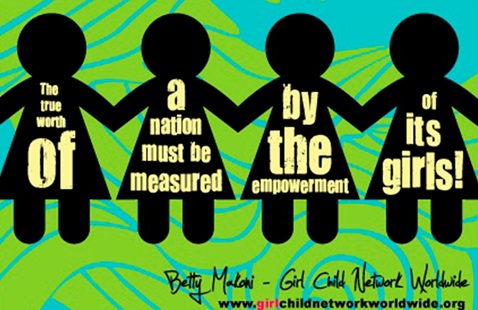
Girl-Child empowerment: Proactive measures can help
Seventeen years ago, I investigated female abduction – labelled elopement by indigenes – in the Wa West District.
Advertisement
My collaborators were educationists, cultural experts, teachers, health officers, social workers and gender personnel. I learnt horrendous statistics: Usually in class one, females equalled – sometimes outnumbered – males by 2:1. However, by the time they reach class six, the ratio would be 1 female : 3 males.
From class four, families would begin to pull out the girls to marry them off. Girls usually start school late, so by class four, they would be physically developed. Therefore, families would marry them off for dowry – cows. The cows till the field or enable male relatives to get wives.
The commodification of females tends to be a major hindrance to female development in the area. In fact, the female teacher-collaborator and the Gender Desk Officer in the District was the only female to have graduated in the history of the District. That was 2007. The commodification of the female gender is rife in Ghanaian society.
A while ago, President Akuffo-Addo stated that female advocacy groups in Ghana ought to be proactive. That statement from Canada galled female advocates in the country.
Abantu gave a long epistle about the achievements of Ghanaian female advocacy groups. One advocate from a different political group was riled that the President undermined the achievements of female advocacy groups in Ghana.
I was bemused. I grasped that the President was hinting that female advocacy groups in Ghana could do more. Anyone acquainted with Canadian strides in female empowerment would have understood the comparison.
Knowing that the antagonistic statements came from stakeholders conversant with Canadian female advocacy perplexed me. But then, in Ghana, we bury our heads in the sand most of the time, come up for air occasionally to bellow flamboyant statements, and then return to hibernation. Meanwhile, flammable human issues simmer and boil and create chasms of human injustice. The analogy applies quite well to female suppression in the country.
In the past two weeks, media platforms have gone ablaze over the marriage between a minor and a 63-year-old Wulomo priest of Nungua. The intricacy heightens depending on the party speaking – politicians, traditionalists, gender advocates, journalists – to name four. Sometimes, the hedging is extremely numbing.
Yet, the one statement from Mr Stephen Asamoah Boateng, the Minister for Chieftaincy and Religious Affairs, that hit the bull’s eye is that some Ghanaian traditions are outmoded.
The interview he granted to Joy News is controversial and requires its own debate. The reference to dated customs, however, is spot on. It is not the first time that a girl sacrificed to a deity is getting to the public. Unlike the Graeko-Roman mythological chief gods, Zeus and Jupiter, Ghanaian gods cannot transform into men for amorous exploits. Therefore, the male priests of various deities get the honour of initiating virgin maids into sexual culture.
Unquestioning devotion to deities effectively pre-empts resistance to such female oppression. A poignant clue to the orchestration of female disempowerment. Ironically, I have not heard of the opposite situation, where chief priestesses get a lineup of male virgins they initiate into sex. Relieving!
Other social concepts feed so strongly into female oppression and deprivation. Irresponsible parenthood results in a high birth rate and associated poverty. In many cases, female children become others’ maidservants and suffer overwhelming indignities. Worst of all, many parents atrociously sacrifice their daughters’ education for their sons’ learning.
Appallingly, unscrupulous male teaching elements can rape or impregnate minors, only to be transferred to another teaching jurisdiction. Instead of facing the wrath of the law, such are given further opportunities to destroy female lives. Pathetic lapses in legal structures enable criminals to get away with female degradation. The fact remains that Ghanaian society does not do enough to protect girl-child dignity.
Across the globe, communities are taking formidable steps to address iniquities against females, children and other vulnerable groups. Popular culture has become a major route for addressing female issues.
TV dramas and movies are effective in creating awareness about gender injustice and pragmatic ways to counter such. Indian telenovelas are refreshing in projecting gender inequalities and social structures established to address such.
For a country which possesses a disgraceful record of a girl getting raped every three minutes, TV playwrights do a fantastic job of projecting gender violence themes in just about every work.
Females could learn assertiveness and defend themselves through the law. Gullible women receive condemnation for blind faith which lowers female dignity. There are valid lessons for Ghana. The numerous laws protecting females must be made to work. Parents must be the nexus of protection for daughters.
The National Commission for Civic Education (NCCE) must collaborate with the Gender Ministry and other civil societies to intensify the fight to protect females. The mass and social media and creative works must be explored to expose atrocities against women.
A multi-sectoral approach and all-hands-on-deck strategies would be pragmatic in fighting female degradation in the country.
The writer is a
Sr. Lecturer, Language and Communication Skills of the
Takoradi Technical University
Takoradi



